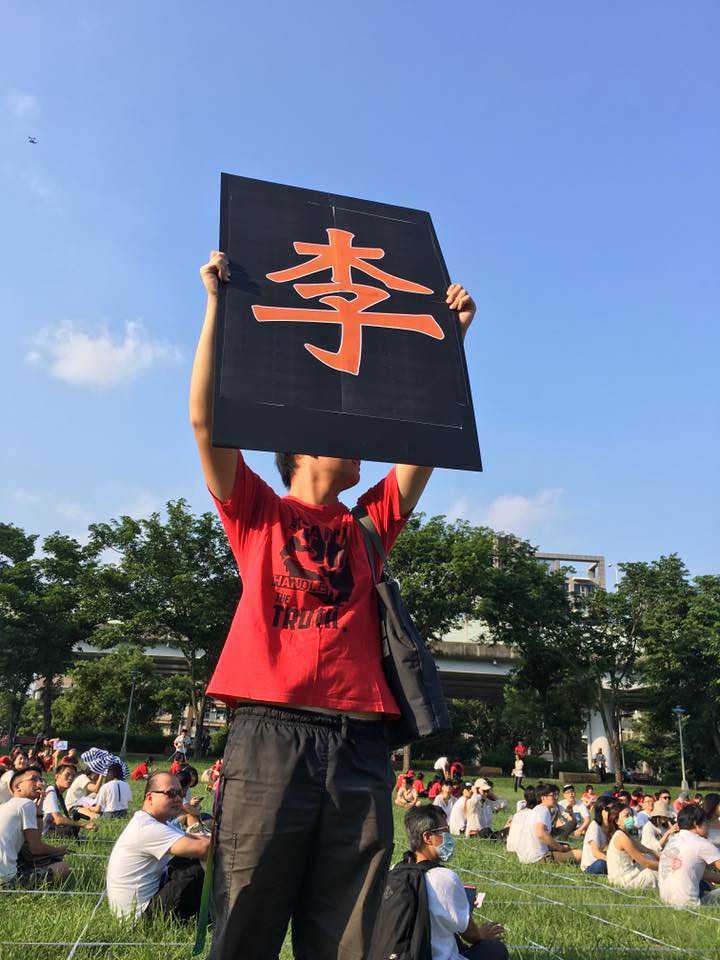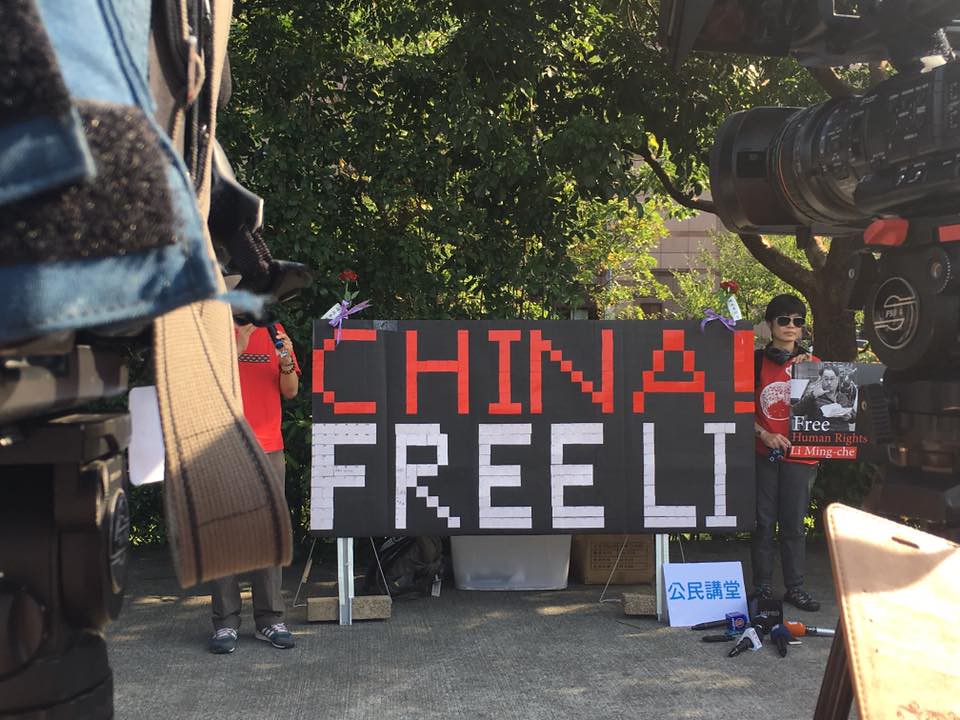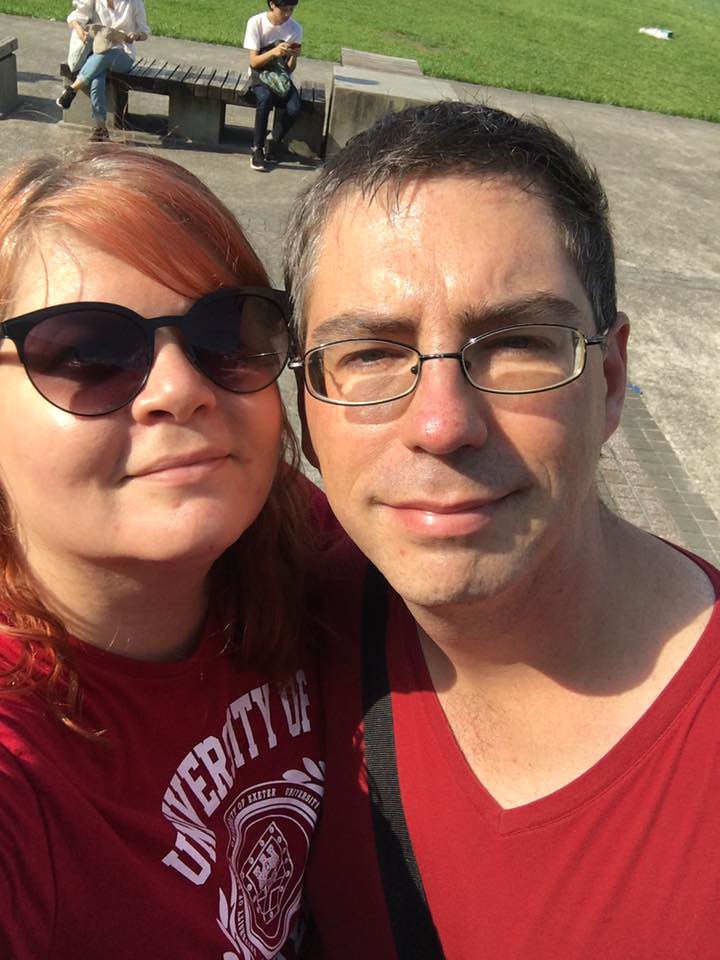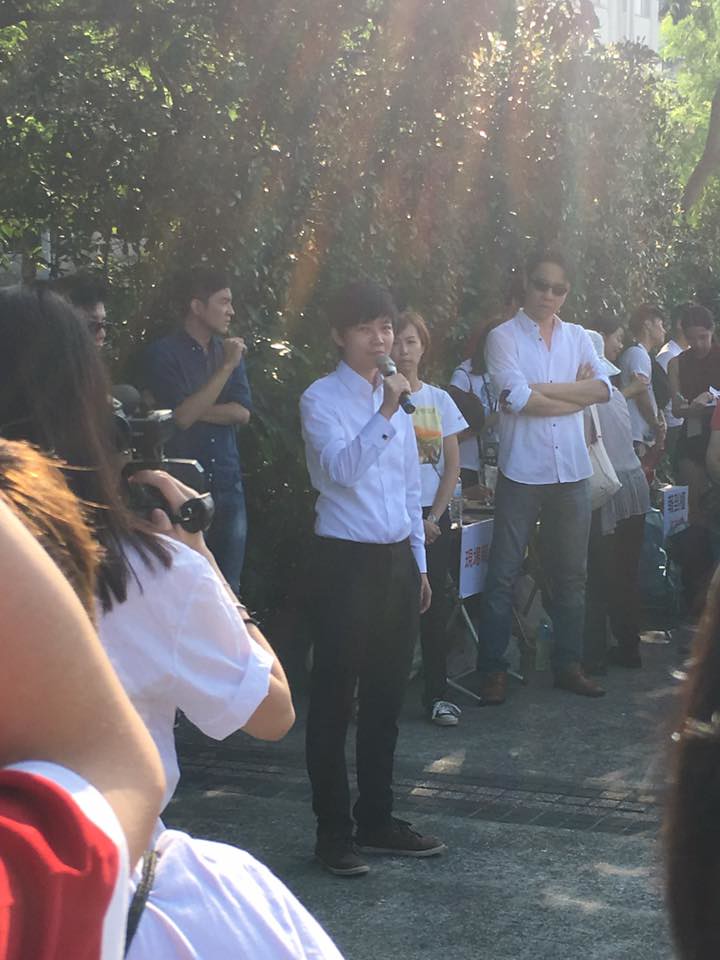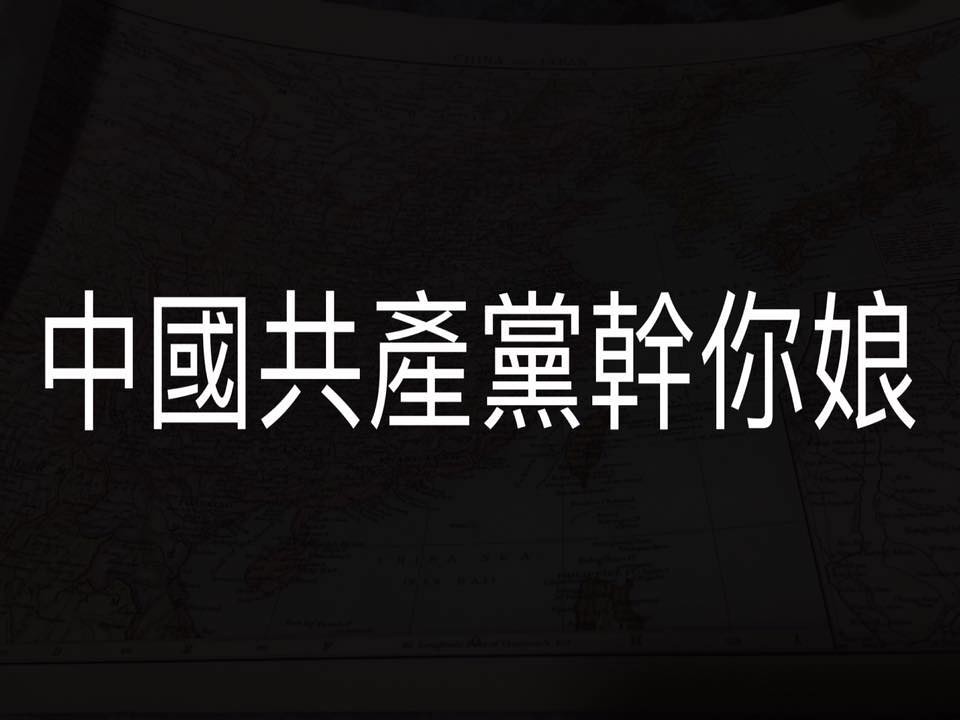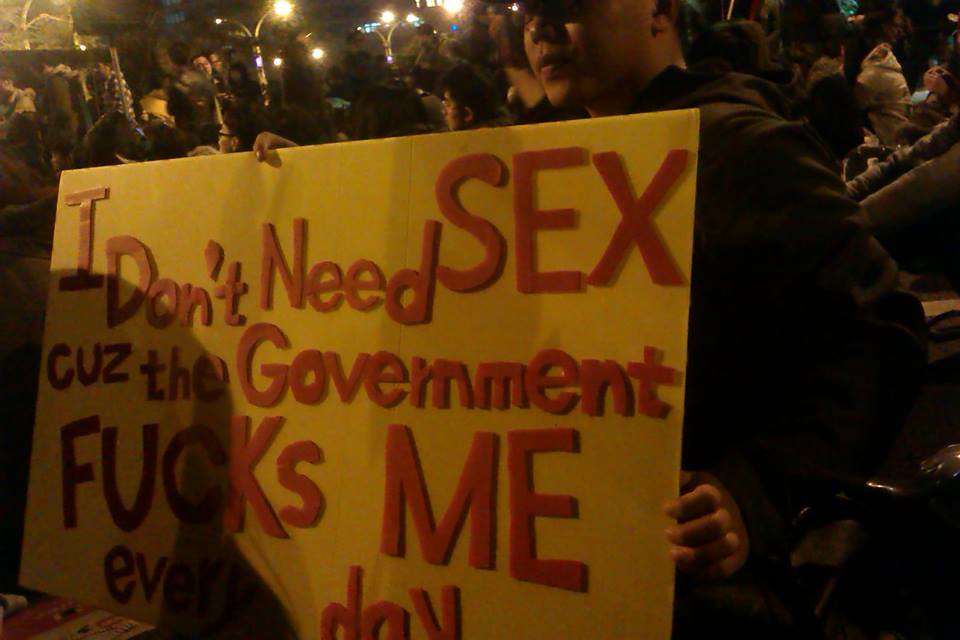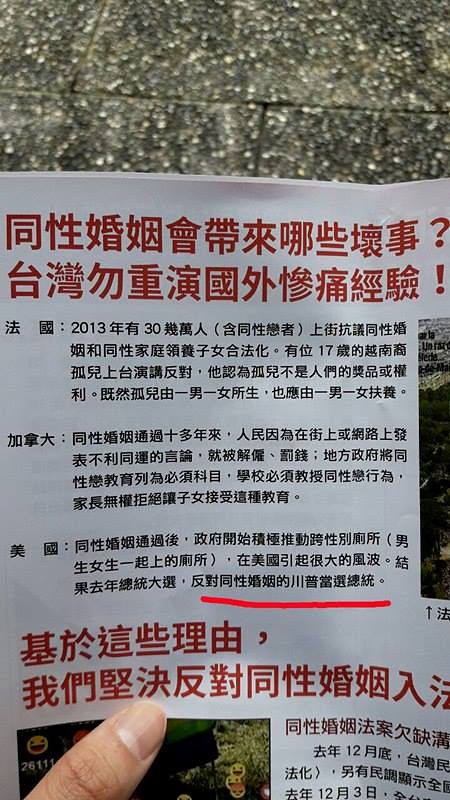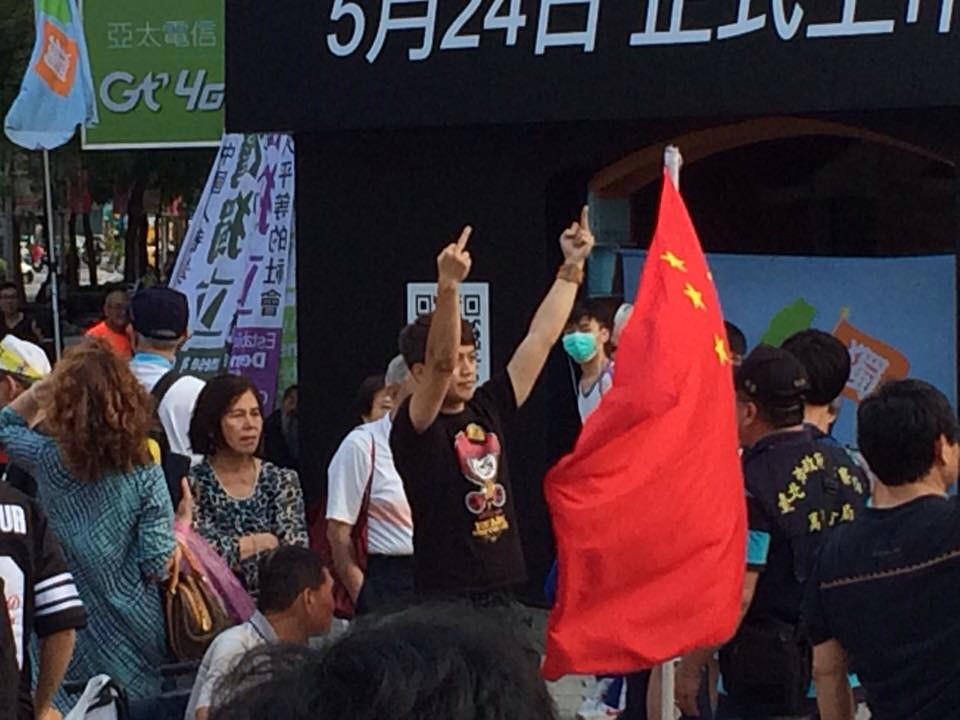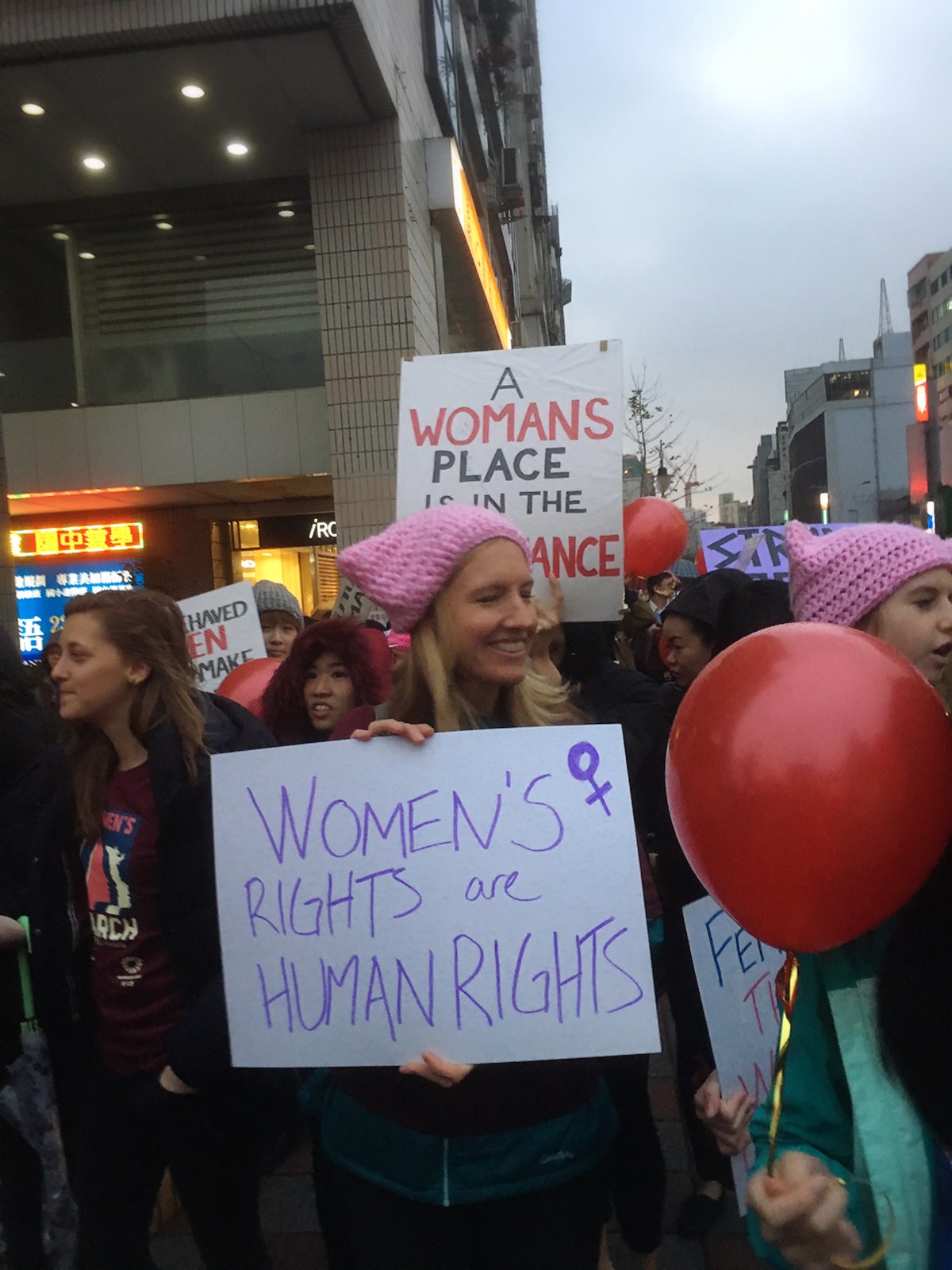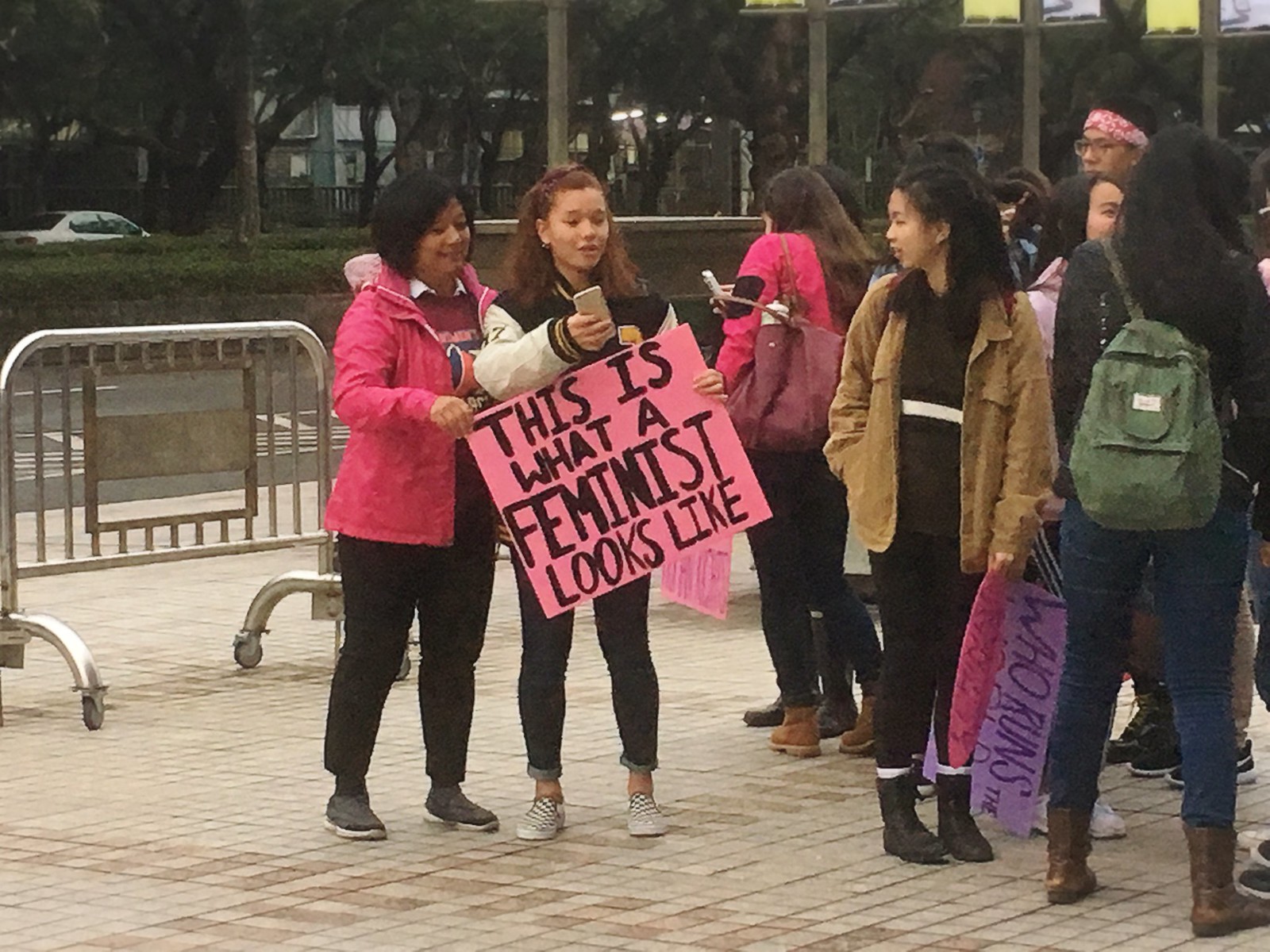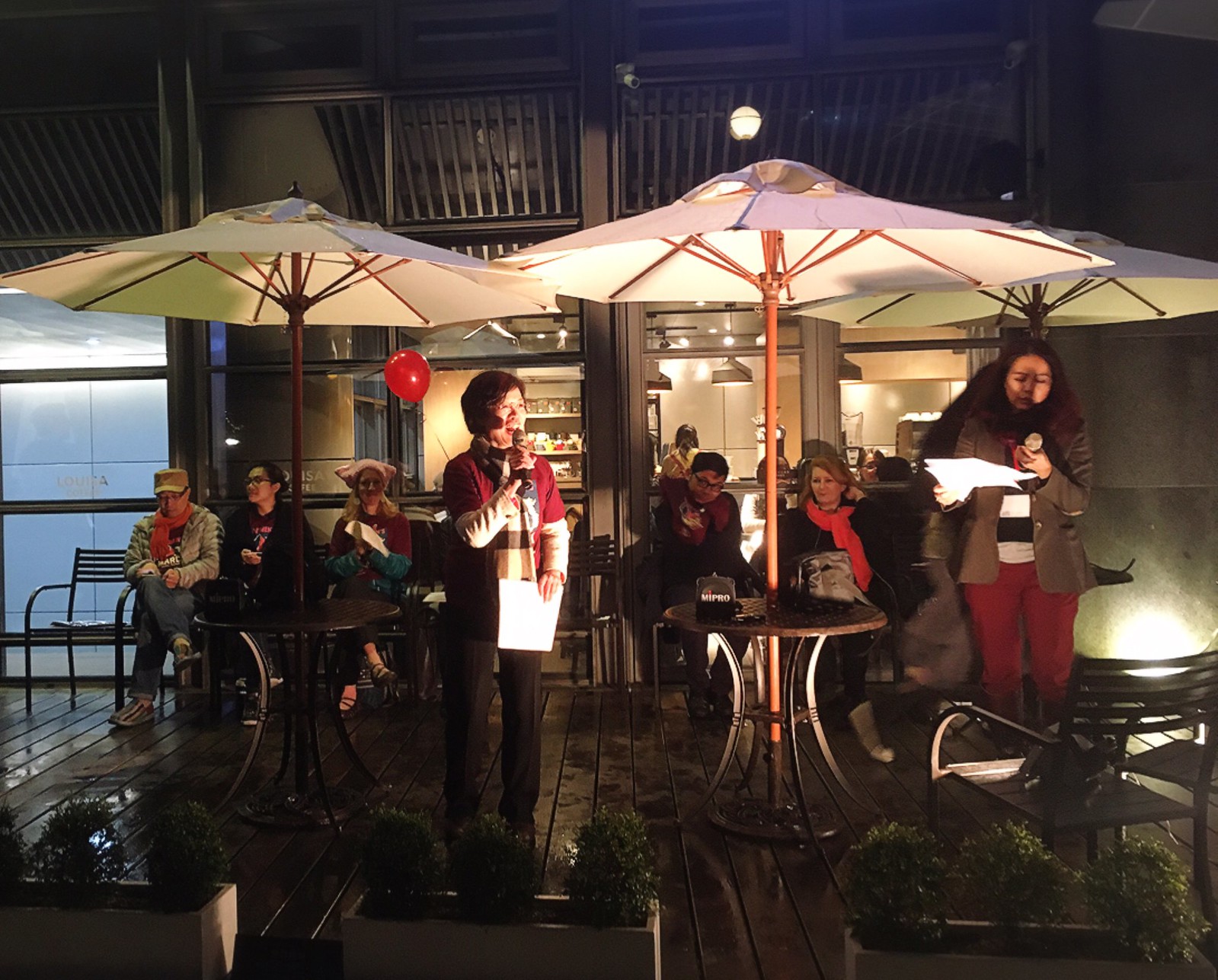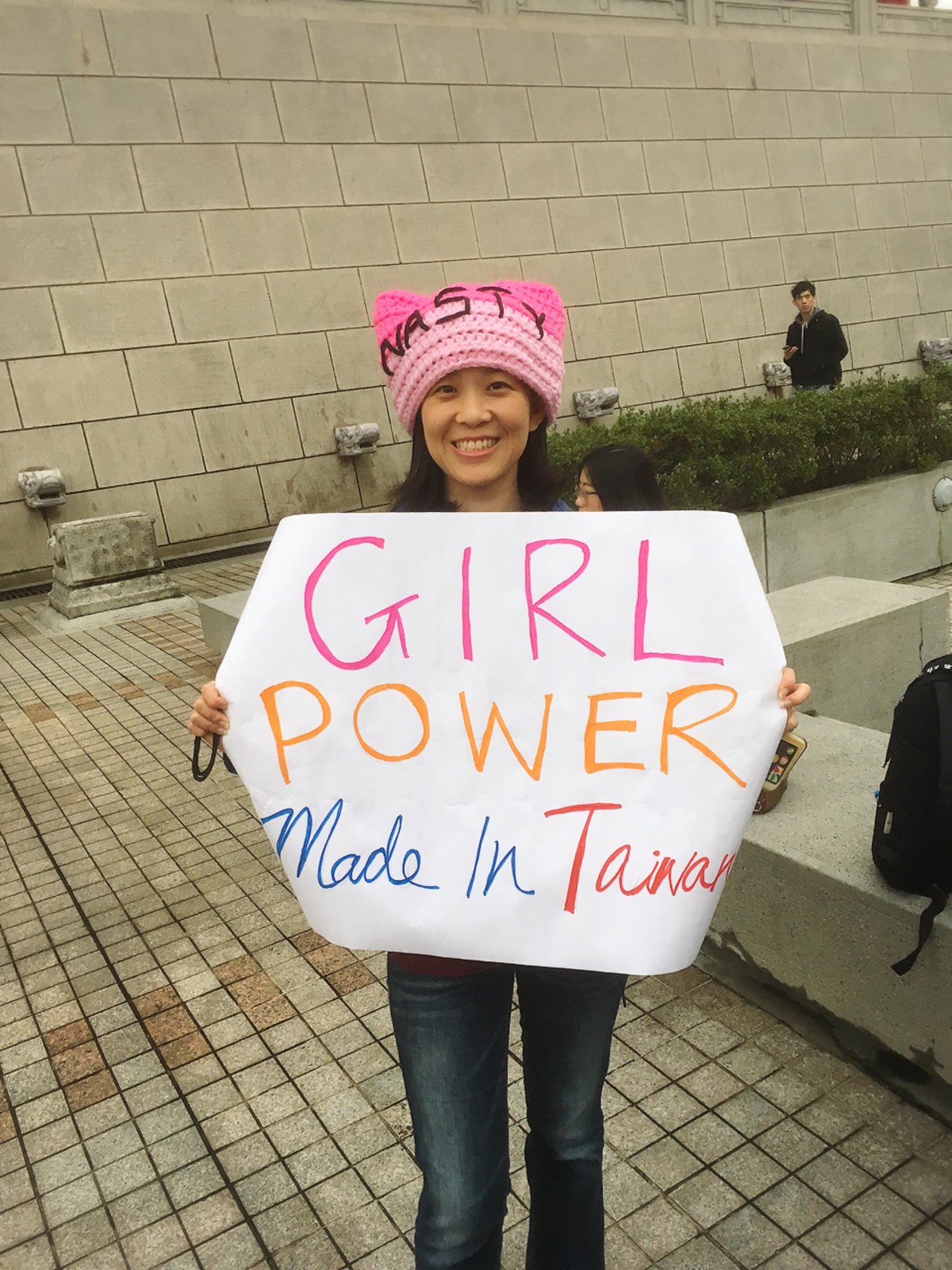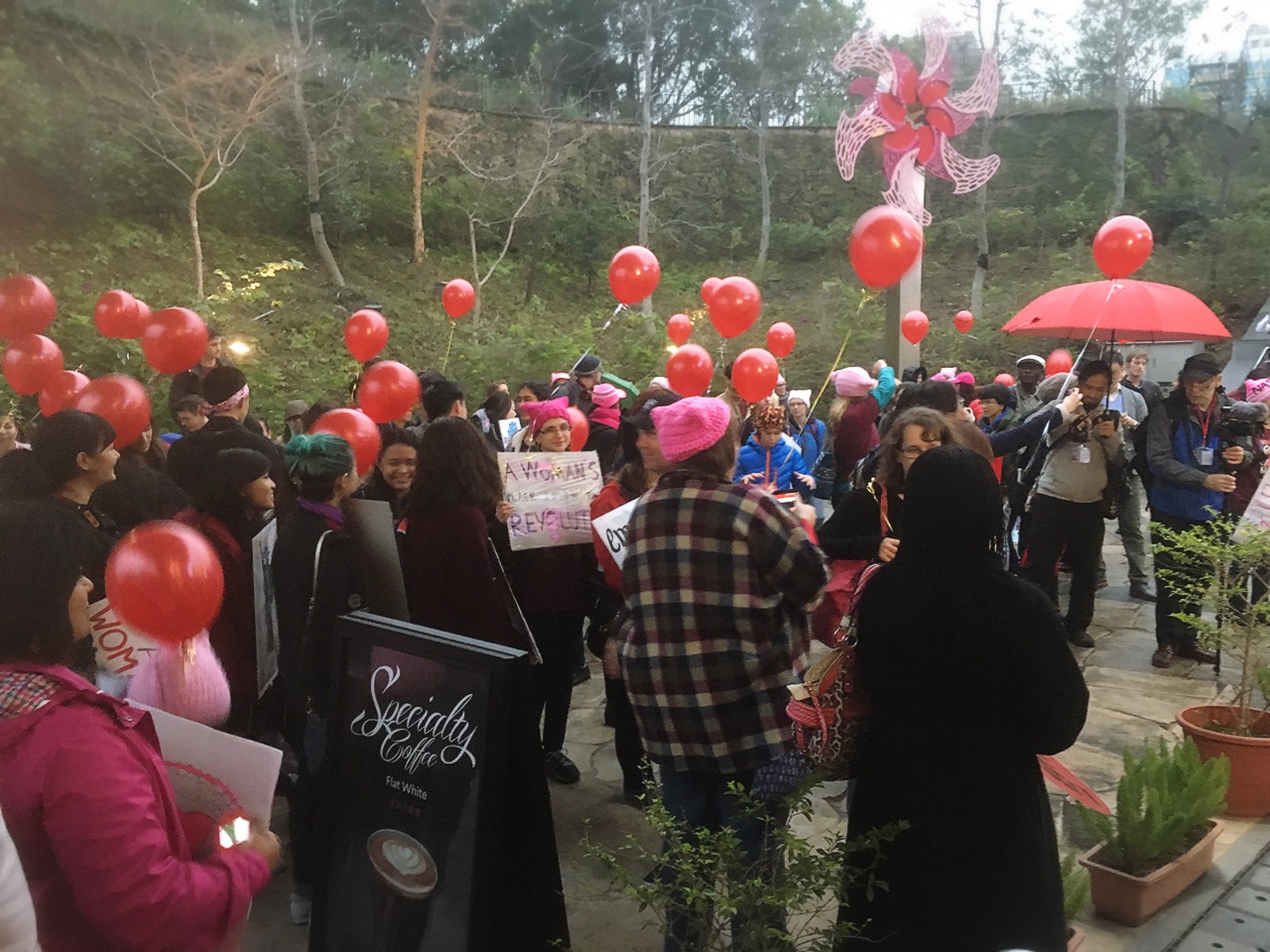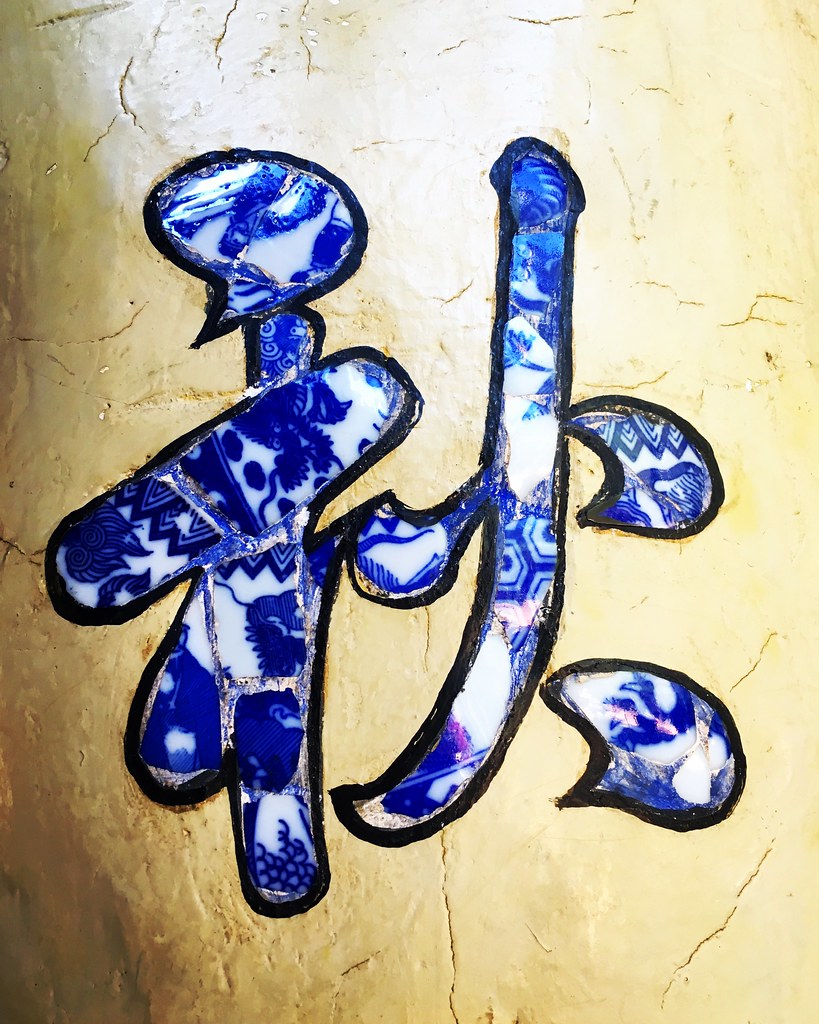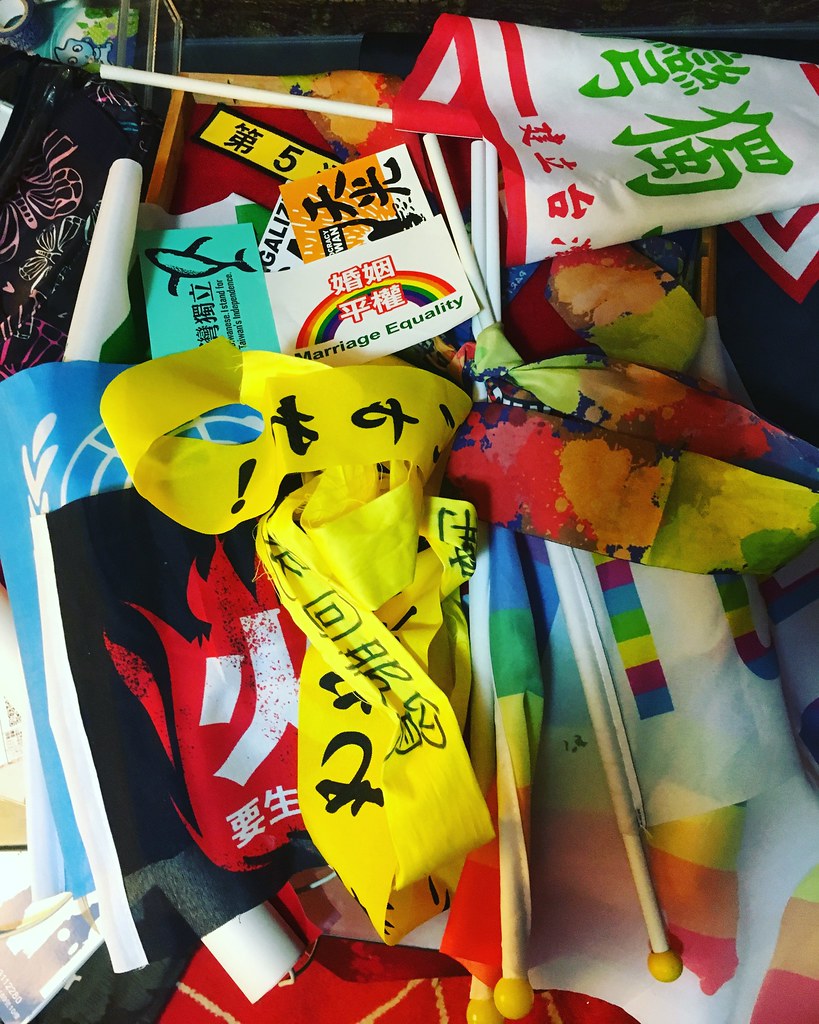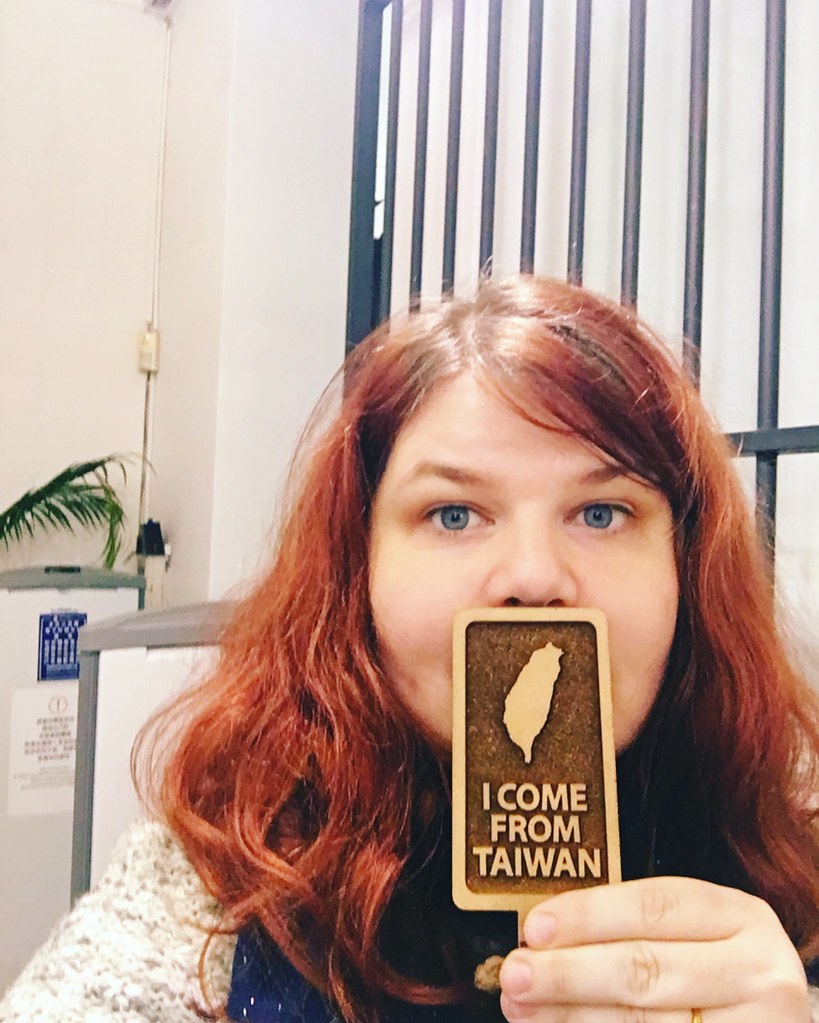I wasn't going to blog about this, because it should be well-known that the South China Morning Post (SCMP) has gone from being a relatively free publication to one that seems to be little more than a Chinese government mouthpiece, and therefore little in it is worth paying attention to anymore.
However, at the encouragement of friends, and also because ignoring fake news as unworthy of our time to refute is one reason why one of the biggest douchelords of his generation ended up as President (barf) of the Unites States of America. Some things shouldn't be given any oxygen to grow, but others need to be held up to the light so everybody can see exactly how the people who create purposefully preposterous content are aiming to run democratic institutions into the ground to give their own agenda more seeming legitimacy.
Also, I did a few Google searches and this article is quite high up in the results, meaning it's time to tear it down and take it apart.
So, let's take this stinking heap of garbage for a spin, shall we?
FYI, as I already wrote out a lot of this where many of you may have already seen it, I'm going to cut and paste quite a bit.
I can think of at least five things wrong with this piece of garbage article.
First of all, the article states that "four" "former student leaders" took jobs in China. Since we don't know who these people are, they could be any one of the 300-or-so people who occupied the legislature:
Chang claims at least four former student leaders are working on the mainland. One works for a computer game developer in Shenzhen, earning the equivalent of HK$12,390 a month.
I have a few (unverified - this is harder to source than I thought and
even the BBC says the numbers are not available for how many young Taiwanese are going to China for work) numbers for you.
Someone I know pointed out that a little under 300 people occupied the legislature in 2014.
Here we have stats saying 60% of young Taiwanese intend to leave Taiwan for work (how many would go to China is unclear),
73% of young Taiwanese saying they would be willing to consider jobs in China (how many would take them is again unclear), and
nearly 60% of Taiwanese working abroad are in China, so we have enough data to know that it's common. Many go, more than half are planning to go abroad, more than half of them are likely to end up in China, and a large majority would be willing to at least consider it.
Therefore, if only 4 out of 300 occupiers (that's not even counting the supporters who camped out outside) took jobs in China, that would be well below the national average, not above it. So the real question is, why isn't that the story? Why is "four" painted as this big deal, when it's actually a very tiny number when compared to the general population? Why are so
few former Sunflowers going to China to work?
That, right there, is fake news for you. Taking a number that actually shows how rarely former Sunflowers go to work in China, and therefore how possible it is to build a life and be pro-Taiwan without moving across the strait, and making it seem instead as though our former student heroes betrayed their cause. The whole thing is marketed so that the truth looks very different from what it actually is.
Secondly. as some of my friends have noted - and I obviously agree - the piece attempts to paint the Sunflowers as an "anti-China" movement:
So what’s the big deal? Plenty of Taiwanese live and work on the mainland [sic]. The Sunflower protesters, who once occupied Taiwan’s Legislative and Executive Yuan, were opposed to closer economic ties with the mainland [sic]. More specifically, they successfully fought in 2014 against the ratification of a key trade pact negotiated between the then ruling Kuomintang and Beijing.
However, that's not what the Sunflowers were about at all. The point of the protest was not the CSSTA (服貿) bill itself, but the way the bill was undemocratically rammed through the legislature with essentially no oversight, with most people not even knowing what the contents of the bill were (because they were purposely kept in the dark), a culmination of a number of undemocratic moves then-President Ma made in the lead-up to his biggest mistake.
Certainly, however, Alex Lo wants you to believe that this was an "anti-China" protest, because it's fundamental to the Chinese government's agenda that readers believe this, especially readers in China whose rage at students in Taiwan "hating" them would serve the CCP well in their quest to ramp up angry, jingoistic nationalism as a buttress for their power. It is also useful to remind Taiwanese citizens who did not agree with the Sunflowers of all the lies their own domestic pro-KMT news was telling them: they were on about "anti-China" this and "they just hate the KMT" that at the time, and some people believed it (hey, copraphiliacs exist in every culture, guys). It helps China to rekindle all of that anger years later. Keep those fires stoked and all.
I think we can safely say most were not in favor of greater integration with China, economically or otherwise, however, and many likely remain so. Once again, though, that wasn't the point of the protest. People who might well have supported the bill had it been deliberated and passed democratically did participate. Plenty of people who might have voted for the KMT did, too. As did plenty of social conservatives.
This is similar to most of the Hong Kong student leaders probably being in favor of HK sovereignty, but it's possible to be a pro-Hong Kong activist without necessarily advocating Hong Kong independence.
So it is quite possible to have been a Sunflower and yet later take a job in China without being a hypocrite. I wouldn't think it terribly common, and I can imagine why supporters of the movement might feel disappointed, but a deeper understanding of the movement would hopefully lead to a rational denouement in that thought arc.
Again, however, it is Alex Lo's and the Chinese government's agenda for you to believe that it would be hypocritical on its face for a former Sunflower to work in China. If you are going to be angry in all the ways that best serve the CCP agenda, a dose of rage at supposed hypocrisy is an even greater spark to light that fire than simply bringing back the old (false) "anti-China/anti-KMT" trope.
What's more, if a Sunflower supporter were to read this and buy its premise - possible, as not every supporter necessarily fully understood what the movement was about - a sense of being betrayed or a loss of faith in leaders formerly admired can also only help China. Their goal is not only to cause Taiwanese to lose faith in their democratic institutions (making them more susceptible, in their plan, to accepting undemocratic Chinese rule) but also in their "heroes" and role models. It serves China if pro-Taiwan voters and activists feel their strongest voices in the new generation have "betrayed" them and are now not worth listening to.
Thirdly, there's this:
If Chang Yu-hua is right, several leaders of the so-called Sunflower student movement in Taiwan have now graduated from university and found work on the mainland [sic].
(Also, why "so-called"? That was what it was called. That or the 318 movement).
One of the island’s [sic - it's an island, yes, but more importantly, it's a country] most influential pundits (really?), Chang said on a TV programme that the former student leaders should apologise for their past actions.
That's one excerpt, but throughout the article it uses the term "leaders" but never names a single person.
Alex Lo, by saying "leaders" without saying who those so-called "leaders" were, makes it sound like Lin Fei-fan (林飛帆) and Chen Wei-ting (陳為廷), among others, are working as, I dunno, game developers in Shenzhen or something. It sounds as though the core Sunflowers, those with the greatest visibility, those who went to court over what happened, have turned tail. It never says that outright but casual readers will immediately connect the words "Sunflower leaders" with the most visible people in the movement. There will be people who will come to believe something the article never says, and when discussing it with their friends, say just that. It's not a big leap to go from "Sunflower leaders working in China" to "hey did you read that article about how Lin Fei-fan and Chen Wei-ting are working in China?"
Of course, even cursory research will show that this is not the case. All you have to do is check the public Facebook page of either of these two most visible leaders, to know that neither is working, nor has any intention of working, in China. You don't even need me to tell you what they're up to - check for yourself! It's all right there online! Neither has been particularly secretive about the general outlines of their current activities or near-future plans.
Furthermore, it wouldn't be possible for them to do so, as both are banned from the country (in fact, pretty much every visible "leader" is most likely banned so using that term is incorrect on its face).
Knowing, however, that most people won't look into the facts and it makes a much more powerful fake news story to implant in people's minds that not just
any Sunflowers but Sunflower
leaders have been brought down to working in China - that gives people something to talk about. The purpose here is not just to make the Sunflowers look bad unjustly, but to make it look like the so-called "change" is happening even among the most ardent participants.
Note that Alex Lo doesn't name the so-called "leaders". Since it's not clear who these people are, it is not at all clear that they were "leaders" at all. The movement had hundreds of active participants, thousands if you count the supporters who camped out outside. Not every one of them is a "leader" but any one of them could have taken a job in China, which again would not be hypocritical. So what?
This is a key facet of fake news - implying heavily, drawing susceptible readers to a certain conclusion, but never actually stating it outright so it can't be fact-checked. We can't check to what extent any of the people Chang was referencing, if they exist at all, "led" the movement because we don't know who they are. Our minds are led to fill in the gaps in all the wrong ways.
My fourth point is related to this: it's not clear who this Alex Lo person is talking about, stopping at "four" people with scant detail on just one, it is entirely possible the "scoop" is fabricated (even if some former Sunflowers did take jobs in China, that doesn't mean that Chang Yu-hua - the originator of this "news" - knows about it necessarily). In fact, I'd say it's highly likely that it was just made up, with the people involved assuming that
someone must have gone to work in China so it probably wasn't "false", even if it was a lie to call it a "scoop" (and it probably was).
That's yet another facet of fake news: making up a news story to further your agenda with plenty of assumed or fabricated facts, figuring that somewhere, somehow, there must be an example of what you are talking about if you are called on it. It's the "but rape culture isn't real because some women lie about being raped" of Taiwan news (yes, it does occasionally happen, on very rare occasions, that a woman has lied about being raped. But the person saying that most likely doesn't know of any cases off the top of their heads, and is just assuming that, if confronted on that factoid, they can find an example quickly enough).
It wouldn't be the first time anti-Taiwan news had made something up out of whole cloth, not said outright that it was true, but implied it in such a way as to cause people to believe it. My favorite example is the person I know who deeply believed that President Tsai had called up a pro-KMT talk show (something-something 酸辣湯, I don't remember the full name because they're a bunch of fucking clowns and I can't be bothered) and told them that once she took office they were no longer allowed to criticize her, and if they did she'd take them off the air. They were even crying and hugging each other saying "this is our last episode!"
This is absolutely ridiculous, and of course it wasn't true, but my acquaintance believed it.
It wasn't even hard to find out it wasn't true - if such a phone call was made, evidence would most likely exist. If it existed, that would have been a
huge news story, not only a very damaging one but one that could have cost Tsai her job. Whoever made it up clearly didn't think very deeply about how freedom of speech laws - yes, laws, so a president violating them would be breaking the law - work in Taiwan, or assumed the audience wouldn't. It's not a hard assumption to make: most of that show's viewers are KMT supporters. The KMT is the party that suppressed free speech in Taiwan for nearly half the twentieth century. If you still support it, well, you clearly think doing so was, on some level, acceptable enough that a president could do it without it creating a huge scandal or causing that president to lose legitimacy even among her supporters. After all, the former leaders of their preferred party did it, and they still support that party.
Anyway, I digress. The point is, it's possible to fact-check this stuff but those who publish it assume people won't.
And you know what? I'm sure some former Sunflowers did take jobs in China. In fact, I've had several people say they can confirm that. I'm not sure to what extent these people were "leaders" (because, again, the leaders are mostly or entirely banned from China), but it doesn't matter, as doing what they did was not hypocritical.
In fact, that some Sunflowers did do this says more about problems in Taiwanese corporate culture (low pay, long hours, few perks, overbearing management) than about any virtues of China or any problems in Taiwanese politics.
And finally, by pinning the whole thing on a report by some other guy, SCMP - which is hardly a bastion of press freedom - is basically washing its hands of any culpability or being accused of "fake news". "I'm just reporting on what Chang said!" is the easy excuse. Another key strategy of fake news - write something from an uncredible source that, even if discredited, can be blamed on that source. "I just heard it from _______!" - but of course when _________ and you, and some other guy after you, and some dude who links to that, and another news source that picks up on it, and the Chinese state-run media who likes what you wrote because it serves their agenda, all publish it, it will look like these "facts" are coming from a number of sources when in fact they originated with just one: Chang Yu-hua, who, as one friend of mine put it, "if his words were worth listening to, shit can be eaten".
And then, if anyone bothers to refute it all as I am doing, you have a bevy of competing sources which makes it look as though the two sides of the so-called "debate" are roughly matched, and therefore both deserve equal consideration, meaning facts don't matter and distortion of those facts is as equally valid as a clear interpretation of them.
That's how it works, and that's China's game - make it seem as though the CCP-approved perspective is, if not the correct one, than one that is on equal footing with other interpretations and deserves the same legitimacy.
Because SCMP is owned by Alibaba (a huge company that is a big supporter of the Chinese government), and Alex Lo is a pro-China mouthpiece, they are happily playing along.
